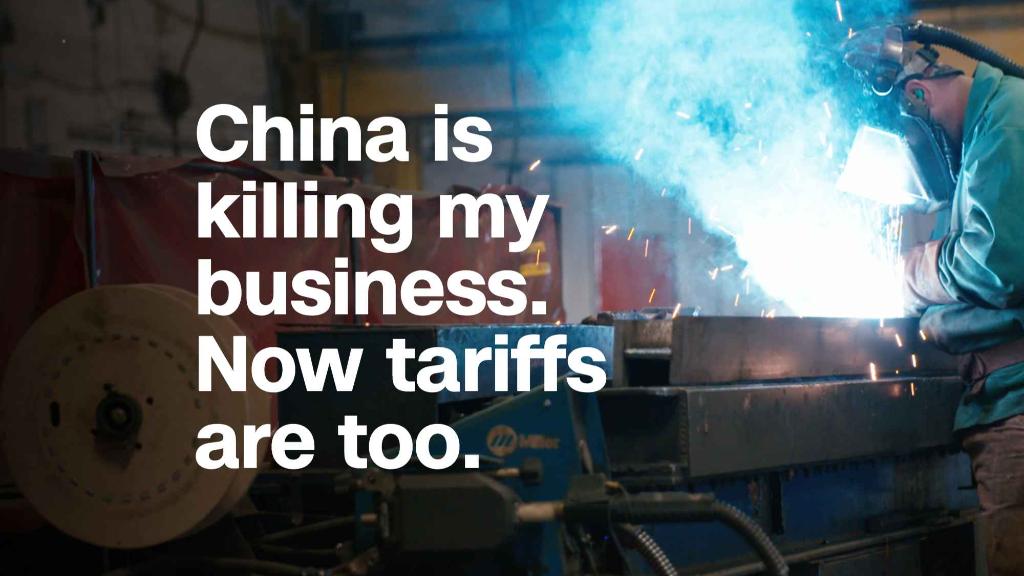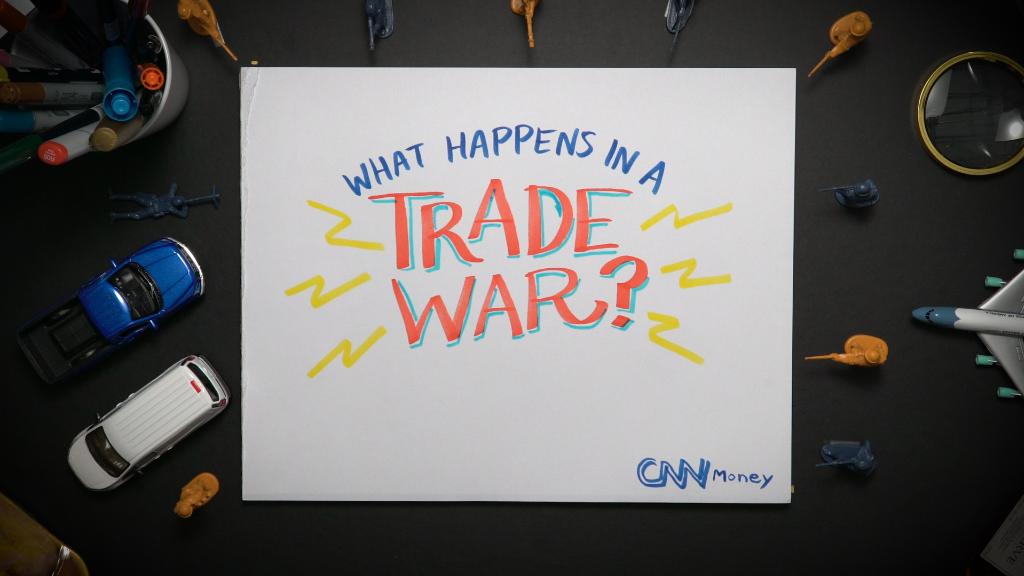
It's not just the United States — European companies are worried about China's high-tech ambitions, too.
In a report published Wednesday, the European Union Chamber of Commerce in China reported "significant concerns" among its members about "Made in China 2025," Beijing's plan to boost industries like robotics, electric cars and computer chips with the aim of becoming a global leader in those areas.
European firms operating in China fear such industrial policies "are tilting the playing field in favor of Chinese players," the report said.
"Made in China 2025" is one of the central justifications given by the US government for escalating a trade fight between the two countries. President Donald Trump has said the plan and other similar policies "harm companies in the United States and around the world."
In its annual report, which surveyed 532 companies in February and March, the European chamber gave a more nuanced view. It said that 43% of firms reported they had seen "increased discrimination" under the 2025 plan, which is viewed as promoting Chinese businesses.
Related: China is trying to kick its foreign tech habit
But some larger European companies said they are benefiting from the strategy because they are gaining increased access to Chinese government subsidies, particularly in the auto and machinery industries, according to the report. And some machinery firms say the plan is lifting demand for their parts and tools.
"The onus is now on China to further expand" opportunities under the plan for foreign companies "to clearly demonstrate that it is not just aimed at achieving domestic dominance," the report said.

Chinese officials have repeatedly rejected the American criticism of the country's trade practices and industrial policies. A Chinese Foreign Ministry spokesman on Tuesday said the US government is "making groundless accusations against China in order to get away with its unilateral and protectionist behavior."
The European chamber echoed US government concerns about foreign companies being forced to hand over intellectual property in order to do business in China. The report said it was "concerning" that 19% of respondents to the survey "have felt compelled to transfer technology in exchange for market access."
Related: How China gets what it wants from American companies
Chinese companies are edging ahead
But it also said that European companies' view of their Chinese rivals is shifting.
For the first time, a majority of respondents to the survey (61%) said "they perceive Chinese companies to be equally or more innovative than European firms," according to the report.
Over all, European companies found China to be a harder place to do business than the year before because of problems like regulatory barriers and limits on market access, the report said.
"We are still far from an environment that fosters fair competition," Mats Harborn, the chamber's president, said in a statement accompanying the report.

